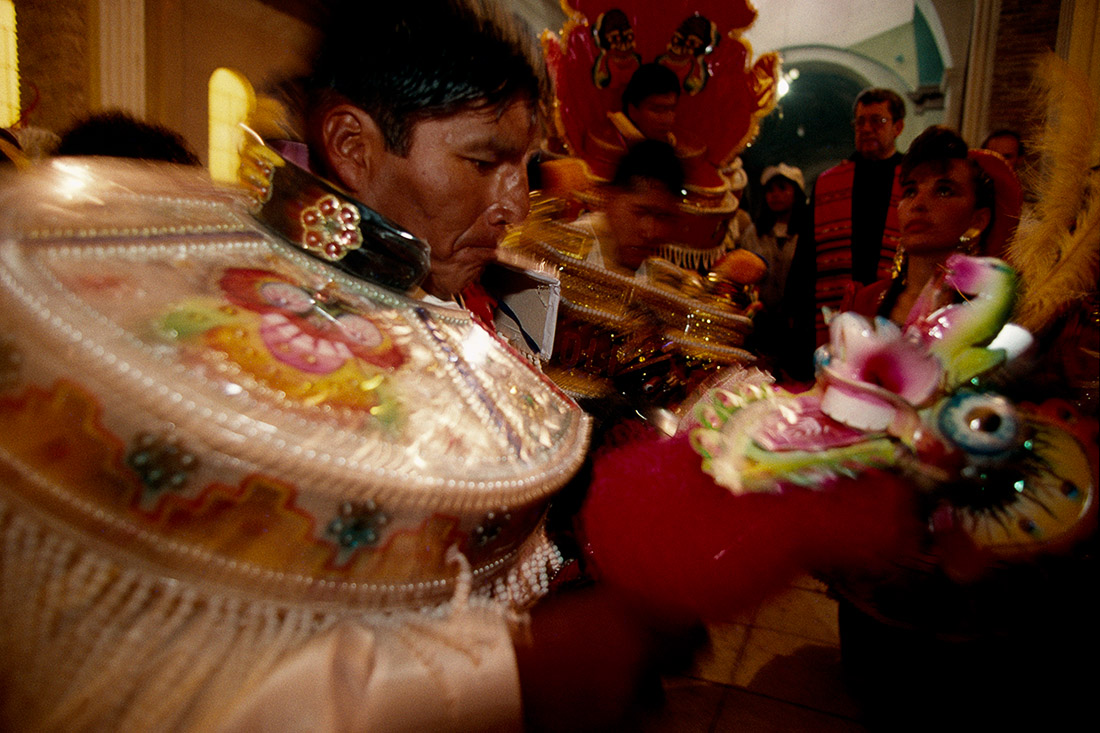Oruro Carnival
Carnival is fiesta: pagan, Christian, religious, secular, provincial, universal. And Carnival in Oruro, Bolivia, is the best in the world. Carnival time is more than having fun: dancing, playing, singing, and dressing in costume and eating and drinking. Most of all it’s living as if the lie of happiness were truth. The lie that we are all equal, free, prosperous, and blessed, and that life is given to us simply to enjoy. That is Carnival in Oruro: a waking dream, and the feeling, for a few days, that life has turned to dream and dream to reality.
No matter that the town officials have prohibited the game of water bags, and threatened to arrest and fine anyone who ignores the ban. During carnival young and old–indoors and outdoors–throw balloons and “eggshells” filled with water, and spray each other with hoses, and pails and jugs of water, until the entire city is practically afloat. The ones who get the most fun out of it, of course, are the children. And their older brothers and sisters, too, because the water games are the source of a lot of romances and courtships, even marriages.
But water isn’t the most important thing about Carnival, that honor goes to music. Music accompanies the masses and processions, and that music is somber and mournful, while the tunes they play for dancing is very spirited. There are dances in private homes and clubs, in neighborhood associations and union headquarters, in the plazas and streets. Oruro is one big ballroom during Carnival. The dances last through the night, and dawn find people still dancing.
Next to the dances, the best part of Carnival is the parades. Queens pass by, surrounded with pages and ladies of honor, and then there are the allegorical floats: fairies, dragons, saints, monsters, angels. The ones that alw

